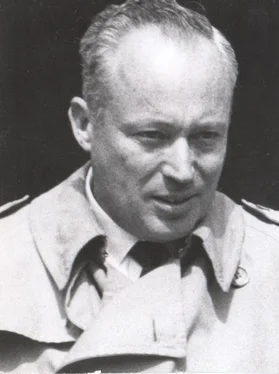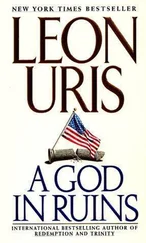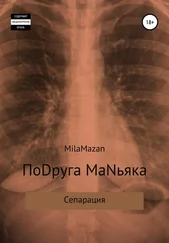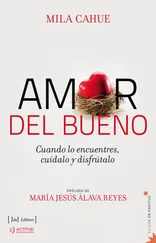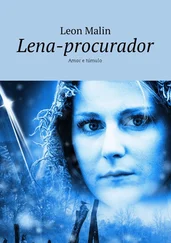Without the devotion of the Ghetto Fighters House International Museum and Shrine, the individual members of the Ghetto Fighters Kibbutz in Israel and their comrades in the International Survivors Association, these pages could scarcely have been written.
Sheer weight of numbers precludes my thanking the others, but I would be remiss if I did not acknowledge the contribution of the Yad Vashem Memorial Archives in Jerusalem and the University of Southern California Library.
Within a framework of basic truth, tempered with a reasonable amount of artistic license, the places and events described actually happened.
The characters are fictitious, but I would be the last to deny there were people who lived who were similar to those in this volume.
LEON URIS
A Biography of Leon Uris
Leon Uris (1924–2003) was an author of fiction, nonfiction, and screenplays who wrote over a dozen books including numerous bestselling novels. His epic Exodus (1958) has been translated into over fifty languages. Uris’s work is notable for its focus on dramatic moments in contemporary history, including World War II and its aftermath, the birth of modern Israel, and the Cold War. Through the massive popularity of his novels and his skill as a storyteller, Uris has had enormous influence on popular understanding of twentieth-century history.
Leon Marcus Uris was born in Baltimore, Maryland. He was the son of Jewish parents of recent Polish-Russian origin. As a child, Uris lived a transient and hardscrabble life. He attended schools in Baltimore, Virginia, and Philadelphia while his father worked as an unsuccessful storekeeper. Even though he was a below-average student, Uris excelled in history and was fascinated by literature; he made up his mind to be a writer at a young age.
After the attack on Pearl Harbor in 1941, Uris dropped out of high school to enlist in the Marine Corps. From 1942 to 1945 he served as a radio operator in the South Pacific, and after the war he settled down in San Francisco with his first wife, Betty. He began working for local papers and wrote fiction on the side. His first novel, Battle Cry , was published in 1953 and drew on his experience as a marine. When the book’s film rights were picked up, Uris moved to Hollywood to help with the screenplay, and he stayed to work on other film scripts, including the highly successful Gunfight at the O.K. Corral in 1957.
Uris’s second novel, The Angry Hills (1955), is set in Greece but contains plot points that center on Jewish emigration to the territories that would eventually become Israel. The history that led to Israel’s earliest days is also the subject of Uris’s most commercially successful novel, Exodus . Not long after Israel first achieved statehood, Uris began researching the novel, traveling 12,000 miles within the country itself, interviewing over 1,200 residents, and reading hundreds of texts on Jewish history. The book would go on to sell more copies than Gone with the Wind .
Uris’s dedication to research became the foundation of many of his subsequent novels and nonfiction books. Mila 18 (1961) chronicles Jewish resistance in the Nazi-occupied Warsaw ghettos, and Armageddon (1964) details the years of the Berlin airlift. Topaz (1967) explores French-American intrigue at the height of the Cold War during the Cuban Missile Crisis, while The Haj (1984) continues Uris’s look into Middle Eastern history. Much of Uris’s fiction also draws explicitly from his own travels and experiences: QB VII (1970) is a courtroom drama based on a libel case against Uris that stemmed from the publication of Exodus , and Mitla Pass follows a Uris-like author through Israel during the Suez crisis. Ireland: A Terrible Beauty and Jerusalem: Song of Songs are sensitive, nonfiction documentations of Uris’s travels and include photographs taken by his third wife, Jill.
Throughout his career Uris continued to write for Hollywood, adapting his own novels into movies, and working as a “script doctor” on films such as Giant and Rebel Without a Cause . QB VII was adapted for television, becoming the first ever miniseries. Uris passed away in 2003 at his home on Long Island. His papers are housed at the Ransom Center at the University of Texas in Austin.

Leon with his parents, William and Anna Uris, who divorced in 1929. William “Wolf” Uris emigrated from Russia to America in 1921 and worked a string of blue-collar jobs before settling into a position as a Communist Party organizer. Anna, who came from a close-knit Jewish family in Maryland, raised Leon and his sister, Essie, mostly in Baltimore and Norfolk, Virginia.

A young Uris in 1929, probably at his family’s home in Baltimore. Throughout much of his early life Uris was shuttled between his father in Philadelphia and his mother in Baltimore. He eventually came to regard his mother as “psychologically unhinged” and his father as a “failure.” This led him to seek success in the world at all costs. “I can say without hesitation,” he once wrote, “that, from earliest memory, I was determined not to be a failure.”

Uris as a young soldier in the Marine Corps. Uris enlisted in the Marines during the height of World War II when he was just seventeen years old. He subsequently served as a radio operator and saw combat in the South Pacific. His war experience represented a defining moment in his life, shaping his outlook on politics and providing rich material for his first book, the blockbuster novel
Battle Cry
.

Uris with his first wife, Betty Beck, in 1945. The two met during the spring of 1944 in San Francisco, where Betty was stationed as a marine sergeant and Uris was hospitalized for malaria, a disease he contracted during his tour in the Pacific theatre. Initially their relationship caused some friction between their respective families since Leon had been raised Jewish, while Betty hailed from a Lutheran family of Danish descent in rural Iowa. However in 1945 the couple tied the knot and began a happy life in the Northern California suburbs.

Uris at his house in Larkspur, a small town just north of San Francisco, California, in 1948. Although disillusioned with his day job at a local newspaper, Uris mostly enjoyed his new suburban lifestyle. “We have a big front porch where we eat dinner in the summer. Inside I have a nice roomy house with a fireplace,” he wrote his sister, Essie. The family lived there for several years before relocating to Southern California.

Uris with his first wife, Betty, and their two children, Karen and Mark, outside their Larkspur home in the late 1940s. At the time Uris worked as the manager of a delivery service for the
Читать дальше
